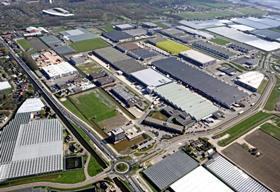
With just one week to go to 29 March, it’s fair to say Brexit is the only topic of conversation for Dutch suppliers into the UK right now.
Britain and the Netherlands have a mutually dependent relationship when it comes to salad crops. The UK is a long way from achieving self-sufficiency in glasshouse production, while for the Dutch, around 20 per cent of its salad crops – worth as much as $320 million a year for tomatoes, $218m for peppers and $88m for cucumbers, according to OEC data – are exported to Britain. It’s clear that both sides need a trading solution, and fast, and the ongoing uncertainty is doing nothing to help long-term planning.
According to Gert Mulder, director of the Fresh Produce Center in the Netherlands, Dutch producers are holding their nerve and placing their faith in politicians to finally see sense and sort things out. “Although there is still uncertainty around, I can’t say Dutch businesses are nervous,” he tells FPJ. “They have prepared on what there is to know and what they can influence. We have been assured by British government officials that the controls on the British side will not impede the trade flow.”
That doesn’t mean that suppliers are taking anything for granted, and they have been rehearsing no-deal scenarios for some time to ensure fresh produce continues to cross the sea. In particular, the industry has created what it has dubbed a ‘Green Lane’ procedure, which ensures that trucks are only loaded with produce that is deemed to be low risk or has passed inspection in the Netherlands for EU compliance.
The approach ensures that no other goods are packed in the same vehicle, with the separation of goods on a risk basis helping border efficiency and assisting an industry that relies on short lead times between ordering and delivery without storage. Although the Green Lane is not yet official, the industry has set up the system so it can be activated when needed.
Mart Valstar, director at the Best Fresh Group, says the Green Lane could be a crucial tool to ensure fruit and vegetables can pass customs quickly on a daily basis, while other approaches have included moving Britain-bound departures forward from 7pm to 9am, as well as setting up computer systems to generate documents for the UK, in much the same way as has to be done for non-EU destinations like Norway and Switzerland. “We have done a lot of preparation for all of this, practising a couple of times a week, so that’s already costing money and time, but that’s what we have to do,” he adds.
There has been much talk of price rises and most industry insiders indicate that looks inevitable. Valstar points to the fact that sterling’s collapse following the referendum put pressure on costs, adding that one way food manufacturers dealt with it was to sell lower weights for the same shelf price.
A new analysis by Dutch management consultancy Berenschot has also predicted that the cost of exporting agricultural products to the UK could rise by as much as 30 per cent in the event of a no-deal Brexit.
The study, commissioned by development company Oost NL and the province of Gelderland, outlines the effect on costs and risks for fresh products, semi-finished products and fully manufactured products using six different scenarios. It comes after new figures from the country’s Chamber of Commerce suggested that only one in three Dutch companies is well prepared for Brexit.
The report’s authors advise businesses to work together to find solutions to the challenges of Brexit. “Together with all additional new registrations, licenses, regulations, labelling requirements and supply chain risks, exporters ideally sell Ex Works and importers buy Delivery Duty Paid,” says Berenschot’s international trade expert Marita de Beer. “But in reality, this is not so simple, particularly if the UK is a strategic market. Then it is important for all parties to protect themselves against Brexit risks by reviewing contractual terms, renegotiating where needed and covering for possible late deliveries as a result of transport delays.”
Mulder says what happens to prices will depend on what the final trading relationship looks like. “Are there import duties, how is the exchange rate doing, do we still have a cost-efficient logistic system, do we have to pay more for inspections on both sides of the border?” he asks. “It could well be that there is a price increase if we are not careful about how we set things up. The Dutch industry has always been creative and efficiency is part of our DNA, so hopes are high that we still can trade with the UK on more or less the same price level. In the end that is what is needed if the fresh produce industry wants to play its role in providing healthy and tasty food for everybody.”
A big concern for Britain is that the Dutch could get fed up of the added complications and look to sell elsewhere. The likelihood of that is being played down, but if uncertainty continues to drag the relationship would inevitably get strained. For now, it’s a case of prepare as well as possible and hope for the best. Producers have expressed relief that British MPs have apparently ruled out a no-deal, and some privately hope that Brexit could still be cancelled altogether. After years of wrangling, it is still not clear when the endgame will come.



